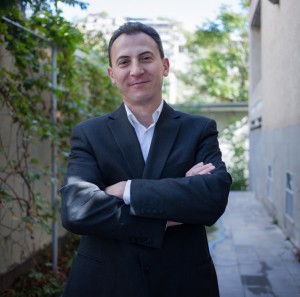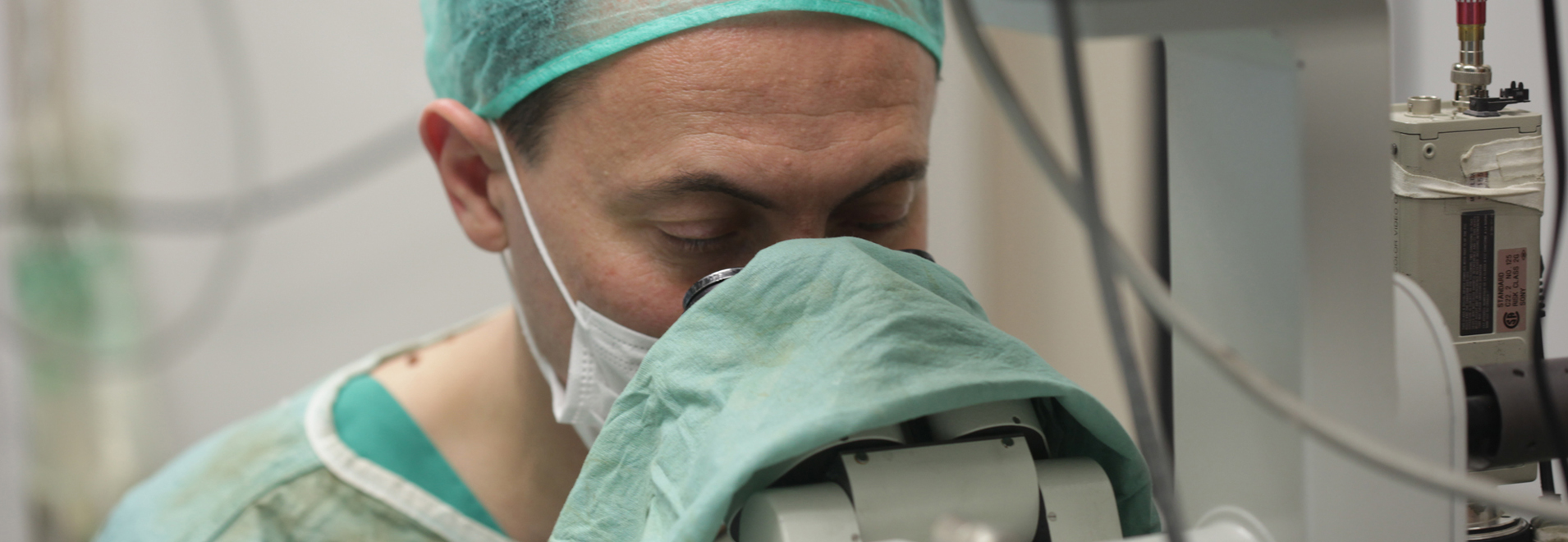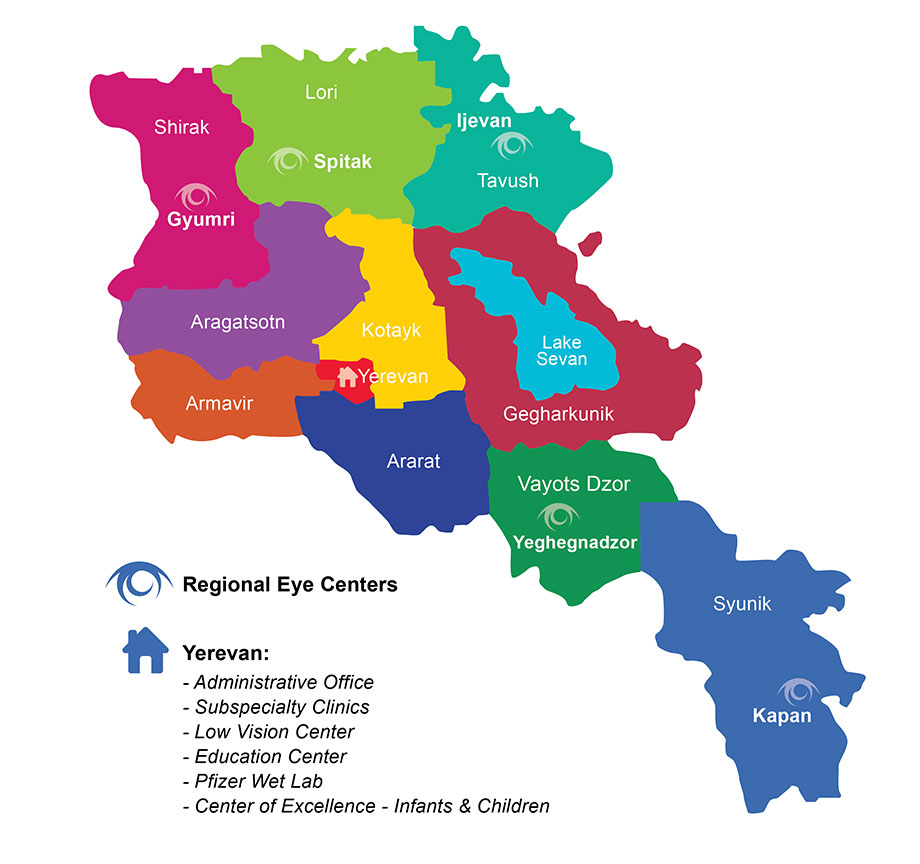MEH COORDINATOR “OPERATES” AS AECP PHYSICIAN AND MECHANIC

Asatour Hovsepyan’s talents as a surgeon and mechanic are ideally suited to his roles as the AECP’s Mobile Eye Hospital (MEH) Coordinator and as a part-time surgeon at the Malayan Ophthalmological Center (MOC.)
“The most valuable thing is that the MEH comes to the patient and offers free quality care when the patient cannot come to the doctor because of his or her extreme poverty,” Hovsepyan explains.
Dr. Hovsepyan sees about 20 patients a day — both surgical and post-surgical — on the MEH. In addition, he performs cataract extraction, conjunctival and lid-plastics, and glaucoma surgery on about 10 patients per day.
“The patients are usually very anxious, agitated, but grateful,” Hovsepyan says. “It is really an event when the MEH arrives in a small, provincial town.”
To help ensure that the MEH arrives, Hovsepyan employs his mechanical talents. After finishing high school and a one-year technical course in 1986, he worked as a mechanic in a vehicle park in the Armenian State Enterprise of Transport and Gas.
Although Hovsepyan knows that the MEH is “very reliable,” his mechanical expertise was helpful when the vehicle was stationed in Jermuk.
“We started our regular operations — exams, laser treatment and surgery — and all of a sudden, the generator failed,” he explained. “The truck driver, Samvel, came to the rescue. We mobilized the local authorities as well. As a result, we were able to find and change the filter and make other repairs.”
As MEH Coordinator, Hovsepyan feels a great deal of responsibility and pride.
“We have very experienced and caring drivers. They love the Machine, every piece of it. They treat Her as a Queen,” he explains. “This attitude is transferred to anyone who has to deal with the MEH while it is traveling across the country—the gas stations, the police, fellow drivers on the road. It’s very fascinating.”
He praises the MEH as “wonderful,” a vehicle with “great technical equipment and possibilities,” and adds that “the idea of bringing the MEH to Armenia is simply great.”
Working with the MEH team, Hovsepyan gains trust and widespread popularity in the regions. Words of thanks and blessings come to him from the patients and regional authorities.
As MEH Coordinator, another one of Hovsepyan’s duties is teaching — training MEH personnel as well as local ophthalmologists in the marzes.
“I like to see the result of the teaching, to identify and help new talent grow,” he says. “In fact, I transfer the knowledge and skills received from my teachers — Drs. Alexander Malayan, Spartak Ohanyan, and Karen Shakhbatyan — and I like to see this transfer of knowledge and skills. Also, I learn myself when interacting with my colleagues in regions and with our residents.” Hovsepyan knew he wanted to become a doctor when he was in grade school and decided to specialize in ophthalmology later on because it combined microsurgery and optics.
“I wanted to treat people, to do good things, to save people’s lives…” he says. “Apart from performing surgeries, I also take a special interest in ophthalmic equipment, particularly the optics. My father, Nickolay, is an engineer, and as a child, I enjoyed studying physics and optics with him.”
After serving in the Soviet Army, Hovsepyan took a six-year graduate program in the Pediatrics Faculty, and a three-year residency program in the Chair of Clinical Ophthalmology of the Yerevan State Medical University, becoming a certified ophthalmologist in 1999. After graduating, he worked for three years as senior laboratory technician of the Chair of Clinical Ophthalmology at the Yerevan State Medical University. He combined this position with his job as a part-time duty surgeon at the Malayan Ophthalmological Center, where he still works at the Center’s Injury Department.
In addition to his work on the MEH, Hovsepyan sees five patients per day at the Malayan Ophthalmological Center and performs 2-3 surgeries per week. The most rewarding thing, he says, “is when a patient can read the chart after the pad is removed following the surgery. It is particularly rewarding when the patient is blind in both eyes before the surgery and the gift of vision is restored.”
Hosvepyan is blessed with wife, Susanna, an ophthalmic nurse, and a daughter, Victoria, who was born many years ago when Hovsepyan was on a MEH mission in the Vayots Dsor marz.
As MEH Coordinator, Hovsepyan is away from his wife and daughter for long lengths of time. “There are moments when I terribly miss my family. Thanks god, I am so overwhelmed with the workload that these moments are rare,” he says with a laugh. “The moments mostly engulf me in the late evenings after I see the last patient and finish my daily report.”
Of all the joys of fatherhood, Hovsepyan says the best is when your child says “Daddy.” He’s quick to add: “By the way, this was her first word and I was very proud.”







